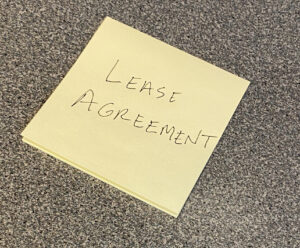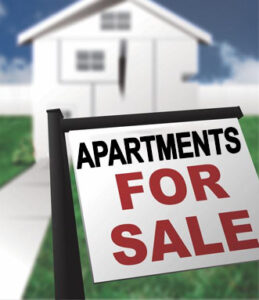 Need something to do?
Need something to do?
I’m tired. I’m tired of explaining to landlords about all of the bad things that have happened to landlords during the course of this pandemic. Throughout the last seven months, government – at every level – has waged a war on housing providers. They’re an easy target. The press and the public have no sympathy for landlords. It’s an uphill battle. It can be depressing and I’m getting tired of explaining all day long what landlords can’t do. But, let’s talk about something positive today. While residential landlords across Illinois have been shut down by the Governor’s eviction moratorium, those same landlords can use this time for something productive. So, let’s see if we can’t talk about what landlords can do! Here are ten things you can do while Governor Pritzker has shut down all of the recourse in your rental business.
1. Talk to Your Tenants
I put this one first because its super important and I’m amazed at how many landlords don’t talk to their tenants. This is the simplest way to improve landlord-tenant relations and obtain useful intel about your rental business. I can assure you tenants do not have cooties. Talk to your tenants. And I don’t mean text or email. I mean talk. Yes, it will be more of a challenge during Covid, but put your mask on and make the effort. Develop a  relationship with your tenants. There are many benefits to a good landlord-tenant relationship. Tenants who like their landlord are far less likely to sue their landlord! Landlords who communicate regularly with their tenants can get early word about problems with their building, the second floor tenant, or possible future rent shortfalls. Tenants might even come to understand your needs as a landlord. Having an understanding of a tenant’s life and their challenges can help a landlord decide whether a tenant should be kept on for a renewal or if it is time to move on once this pandemic is over. Learning about a tenant’s current needs can help a landlord cut a deal with a tenant to vacate on cash-for-keys without having to resort to an eviction. In the long run, that could be much cheaper than allowing a bad tenant to stay on for multiple months without making payments.
relationship with your tenants. There are many benefits to a good landlord-tenant relationship. Tenants who like their landlord are far less likely to sue their landlord! Landlords who communicate regularly with their tenants can get early word about problems with their building, the second floor tenant, or possible future rent shortfalls. Tenants might even come to understand your needs as a landlord. Having an understanding of a tenant’s life and their challenges can help a landlord decide whether a tenant should be kept on for a renewal or if it is time to move on once this pandemic is over. Learning about a tenant’s current needs can help a landlord cut a deal with a tenant to vacate on cash-for-keys without having to resort to an eviction. In the long run, that could be much cheaper than allowing a bad tenant to stay on for multiple months without making payments.
2. Talk to your Insurance Agent
Contact your insurance agent for a check-up on your coverages. You might find that you have a claim for loss of rent on your policy. Most residential landlord policies do not cover loss related to a pandemic, but some might and it’s worth checking out. Moreover, it is a good time to make sure you have the correct type of coverage and the correct amounts. Maybe your building is worth much more than when you purchased and it is time to raise your coverage. Maybe the opposite is true. Getting a check-up during this time can be a good use of your time. Also, if you require your tenants to have renters insurance, make sure you have declaration pages and that the insurance is in force. Talk to your insurance agent about the benefits of renters insurance. Is it time to change your policy on requiring it?
3. Talk to your Lender
Many lenders are offering relief to their landlord customers. In some cases (CARES Act, etc.) relief is required. You never know what kind of help you can get until you ask. Some of my clients have been successful in transitioning into a temporary “interest only” payment scenario. Other landlord clients have had success with a full forbearance of payments with missed debt being moved to the back-end of the loan. A building in better financial shape with good cash flow might actually be in a favorable position to refinance. You can’t beat today’s low interest rates.
4. Plan Your Next Year
Do some planning. Figure out when all of your leases expire (especially taking into account the new Fair Notice law if it applies to you). Figure out which tenants you will renew and which tenants you want to non-renew. Start the process of planning what you will do when things start to get back to normal. Be prepared with new leases and security deposit interest payments if those will be required. Remember, there are some new rules in Chicago relating to notice of non-renewal.
5. Learn the Law
Plenty of new laws affecting landlords have gone into effect in 2020. There was a time before Covid-19 when we thought that the Just Housing Amendment to the Cook County Human Rights Ordinance was going to be the big story of 2020. That sentiment could not have been more wrong. There are all kinds of new laws that landlords need to get familiar with. The most groundbreaking on for Chicago landlords is probably the Mayor’s Fair Notice Amendment (changes to 5-12-130(j)), including the one-time right to cure , which applies throughout Chicago (even non-CRLTO properties). There are also new rules on 5 day notices in Chicago, new state-wide court rules that change the pleading requirements for Eviction complaints, a Federal CDC eviction moratorium, the CARES Act, and other laws and rules landlords need to get familiar with.
6. Review and Revise your Rental Criteria
The Just Housing Amendment to the Cook County Human Rights Ordinance changes the fair housing rules related to criminal background checks but it goes further than just criminal background. Part of the law requires that a landlord provide written copies of the landlord’s “tenant selection criteria” to prospective tenants. Many landlords, especially smaller ones, have given little consideration to these in the past. After we go back to normal (or the new normal), screening is going to be massively important. You will want to have the tools to screen out tenants who did not pay rent during Covid despite having plenty of resources to do so. Let some less diligent landlord get stuck with those bad tenants. Landlords need to create systems and install processes that they may have ignored in the past such as getting landlord references, doing diligent verification of application information.
7. Review and Revise your Lease and Rental Practices
Things will be different when things get going again. Will your lease be ready? Have you reviewed your force majeure clause (if you have one?). Do you have the most up-to-date CRLTO disclosures (the CRLTO ordinance summary for changed around the middle of this year)? Maybe it is time to reevaluate that policy on taking security deposits? When was the last time your lease got an overhaul? When was the last time you had the time to even make an analysis of the terms in your lease? Double check that your lease is in compliance with the law and further that it contains no strange provisions or unfavorable terms. I’ve seen leases that require a 30 day notice rather than a 5 day notice for nonpayment of rent. Don’t give away your rights unnecessarily. We could call this tip “talk to your lawyer“. There is no “perfect” lease form, but a lease can always be better.
CRLTO disclosures (the CRLTO ordinance summary for changed around the middle of this year)? Maybe it is time to reevaluate that policy on taking security deposits? When was the last time your lease got an overhaul? When was the last time you had the time to even make an analysis of the terms in your lease? Double check that your lease is in compliance with the law and further that it contains no strange provisions or unfavorable terms. I’ve seen leases that require a 30 day notice rather than a 5 day notice for nonpayment of rent. Don’t give away your rights unnecessarily. We could call this tip “talk to your lawyer“. There is no “perfect” lease form, but a lease can always be better.
8. Renovate your Vacant Units
Got a vacant unit? Fix it up. Why not put off installing a tenant into a unit when you have no recourse whatsoever against the tenant who stops paying (even if the tenant has great credit and a job) and instead renovate and update your unit so that you can go back on the market once things go back to normal? It might be a great time to put on a fresh coat of paint, install some new carpet, or otherwise update your units so that once you do go back on the market, you can charge a higher rent and your units will be more desirable to the market. Rents are going down across the state and this might be a great way to fight back against the market.
9. Get Involved and Join a Property Owner’s Group
Get involved. Get political. Whether you are a landlord in Chicago or the suburbs, the legistlative bodies are targeting you. There are all kinds of issues affecting housing providers. The Cook County Residential Tenant and Landlord Ordinance is a hot topic being considered in front of the Cook County Board. The fight over this ordinance affecting all of Cook County (except for Evanston, Chicago, and Oak Park) is going to be huge. Chicago landlords need to care about this one because this law is more restrictive than the CRLTO and once passed, Chicago is sure to follow. There are other issues like state-wide rent control, lifting the ban on rent control, Just Cause for Eviction, the city’s ARO and ADU ordinances that are being kicked around the local governmental bodies. We even have the CDC moratorium and the need for reform in the Sheriff’s office. Get involved. Make your voice heard and your opinion known. There are plenty of landlord/building owner/developer groups that keep people up to date on these efforts, organize property owner efforts, and provide a networking opportunity to meet and discuss major issues affecting landlords. Groups like the Neighborhood Building Owners Association, Chicagoland Apartment Association, Rogers Park Builders Group, Northwest Side Building Coalition, Illinois Rental Property Owners Association, and plenty of other organizations are out there working hard to help this industry and fighting on the front lines of these battles. Get involved. Get involved. Get involved.
10. Talk to a Real Estate Broker
 Are you sure that you still want to be a landlord after seeing the way the government has treated you? Are you sure you want to do this with that one unit or that two flat? Even after knowing about all of the future pressure that is being brought to bear on landlords? Are you a suburban Cook County landlord looking to get out before the Residential Tenant and Landlord Ordinance forces lots more landlords to jump out of the game? It might be time to think about getting out. Might it make sense to do this before 1031 exchanges are written out of the tax code per rumors floating around about the Biden tax plan? A real estate agent (and your real estate attorney) can help you figure out what you would need to sell. On the other hand, are you a “regular”? Do you look at these changes as just “more of the same” when it comes to the real estate game and you might be looking to pick up some more properties? I have a feeling that some rental buildings are going to be coming available. There is likely to be a slew of buildings coming onto the market as their owners run out of reserve funds to continue funding property taxes, insurance and mortgage payments during a period when tenants are given free reign to withhold rent. Being ready with an agent or agents who are knowledgeable about an area where you might want to increase your investment.
Are you sure that you still want to be a landlord after seeing the way the government has treated you? Are you sure you want to do this with that one unit or that two flat? Even after knowing about all of the future pressure that is being brought to bear on landlords? Are you a suburban Cook County landlord looking to get out before the Residential Tenant and Landlord Ordinance forces lots more landlords to jump out of the game? It might be time to think about getting out. Might it make sense to do this before 1031 exchanges are written out of the tax code per rumors floating around about the Biden tax plan? A real estate agent (and your real estate attorney) can help you figure out what you would need to sell. On the other hand, are you a “regular”? Do you look at these changes as just “more of the same” when it comes to the real estate game and you might be looking to pick up some more properties? I have a feeling that some rental buildings are going to be coming available. There is likely to be a slew of buildings coming onto the market as their owners run out of reserve funds to continue funding property taxes, insurance and mortgage payments during a period when tenants are given free reign to withhold rent. Being ready with an agent or agents who are knowledgeable about an area where you might want to increase your investment.
